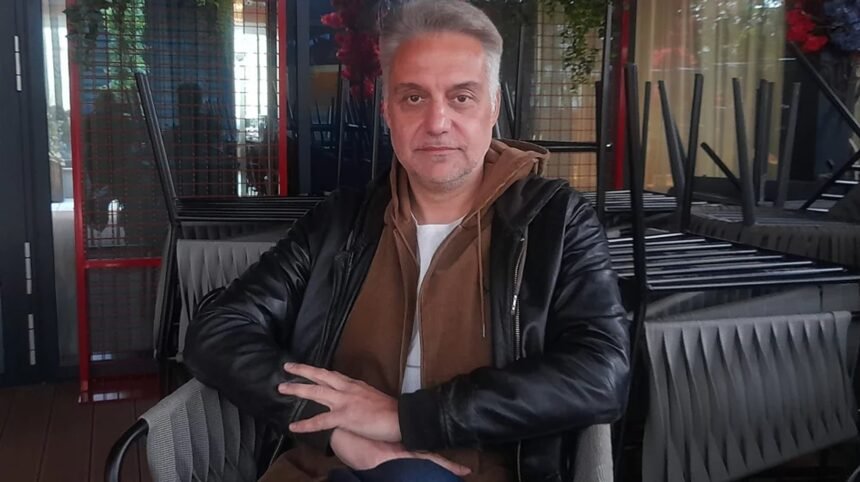The Author’s Film Festival (FAF), one of Serbia’s most prestigious cultural events, will take place this year in a location that starkly mirrors the country’s political reality—next to Čaciland, the site of armed student protests and Diana Hrka’s hunger strike. For Srdan Golubović, the director, activist, and president of the festival council, this is no coincidence. “It will be dramatic and interesting,” he told Danas, “because it exposes the collision of worlds: art and authoritarianism, hope and repression. It reminds people what we live in every day.”
Golubović has remained largely absent from the media for months, focused on writing a new script, yet his support for student protests has never wavered. He warns that the government has long kept Serbia in a state of emergency and division—“like a silent, permanent civil war”—where institutions, culture, and education are weaponized to consolidate power rather than serve the public.
A “Time Machine” to the Darkness of the 1990s
“The festival was born in stormy times,” Golubović explains, recalling FAF’s origins in the 1990s, during the collapse of social and political norms under Milosevic. Yet, three decades later, the country finds itself trapped in a similar cycle of authoritarianism and societal decay. “We’ve been living in a circle, like rats spinning on a wheel,” he says, “sacrificing for a humane, fair, and honest society, only to see little change.”
Golubović emphasizes that the student generation now leading protests has brought unprecedented energy to the struggle, challenging a regime that has perfected the art of manipulation and obstruction. “The struggle will last for a year, maybe longer, but these changes cannot be stopped,” he asserts.
Education and Culture Under Siege
The government’s attacks on culture and education have been systematic, calculated, and retaliatory. “This year marks the culmination of years of catastrophic treatment of culture,” Golubović says. “From blacklists of actors and directors to the arbitrary denial of financial support, this regime has weaponized culture against those who think and question. They want to erase independent thought, replace value with party loyalty, and impose non-culture as mainstream.”
He adds that the government even targets independent festivals to consolidate control, while institutions like the Ministry of Culture and the City of Belgrade deny funding entirely, leaving the festival to survive on its reputation alone. “It’s disgraceful,” Golubović says. “A country that cannot recognize the value of thirty years of artistic contribution is a country in moral collapse.”
A Public Service Turned Propaganda Tool
The state broadcaster RTS, which should act as a public service, has abandoned all pretense of independence. “RTS canceled its public service function a long time ago,” Golubović notes. “It is a key problem because media shape the climate and social-political atmosphere. Without objectivity, there is no democracy—only authoritarianism.”
He warns that those who once supported the government are now being forced to compromise their ethics, “wallow in the mud,” and cling to survival as the regime’s naked reality becomes impossible to disguise.
Students: The Political Vanguard
Golubović celebrates the students not only for their courage but for the transformative nature of their protest. “Freedom is like a virus—you cannot stop it. The students’ walking protests are a supreme act of liberation, a visual cry for justice, and a model of avant-garde democracy,” he says. The nonviolent, leaderless structure of the student plenum represents a form of political engagement rarely seen globally and exposes the regime’s powerlessness despite its brutality.
The Regime’s Failure is Exposed in Every Sphere
“The government imagines it can wipe out culture and education, but freedom and creativity always find a way,” Golubović asserts. The regime’s attacks are not accidental—they are strategic, punitive, and meant to erase independent thought. Yet, the public, especially the younger generation, is no longer passive. “The country is different now. The students have created a historical moment that cannot be ignored,” he says.
Conclusion: Art and Protest as Resistance
Despite the government’s relentless attempts to subjugate society, FAF continues as a beacon of resistance and hope. The festival embodies the collision between repression and freedom, a vivid reminder that authoritarianism cannot fully extinguish creativity, courage, or justice. Golubović’s voice—and that of the students—signals a society unwilling to surrender.
“This government is coming to an end,” he declares. “The naked reality they created cannot be clothed again. No more illusions, no more lies. It’s over.”







